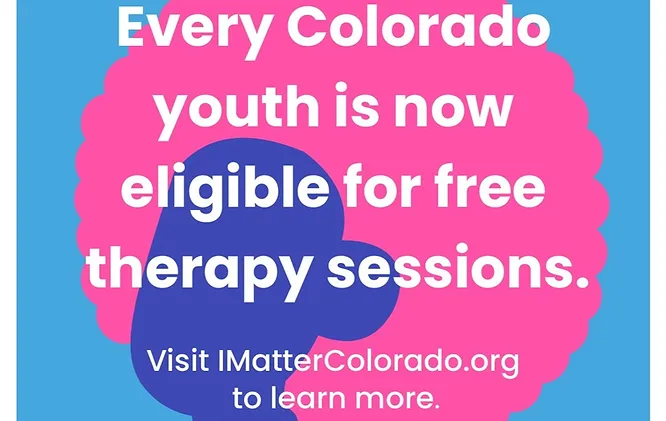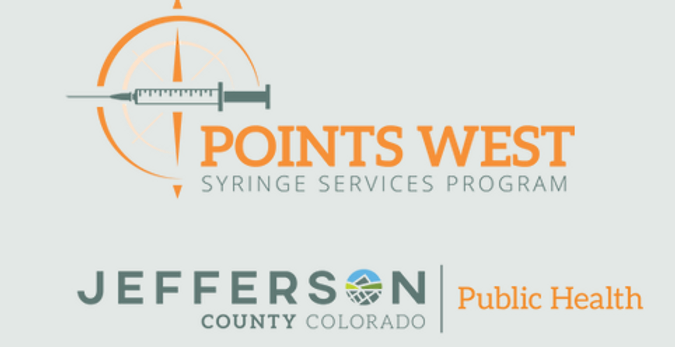Twelve Talks to
Have With Teens
Overdose
We have an opioid epidemic in Jefferson County. Any pills, powders or homemade vapes that don’t come directly from the store or pharmacy could be contaminated with the synthetic, deadly opioid, fentanyl.
- Don’t assume your teen isn’t at risk. Jefferson County youth report that drug use is common across social groups, including AP/IB students, athletes, student government participants and others. In Jefferson County high schools, 1 in 8 seniors and juniors report having used a prescription drug not prescribed to them. Because fake pills contaminated with fentanyl look identical to “real” pills, teens may not realize the risk they are taking when they use pills from other people. Often the person supplying the pill doesn’t even know it’s contaminated.
- Fentanyl is odorless, tasteless and cannot be seen. A dose the size of two grains of salt can be fatal. It can be added to any type of:
- Pill
- Liquid
- Vape pod
- Powder
- Youth in Jefferson County report that “sharing” the following is common.
- “Study drugs” including Ritalin®, Adderall®, Concerta®, and Focalin.®
- Anti-anxiety drugs including Xanax® and Klonopin®
- Prescribed opioid pain relievers, such as Oxycontin, Percocet, and Vicodin, which are often prescribed to teens after tooth extractions or an injury
This is currently more dangerous because counterfeit drugs are made to look like these common prescription medications.
- Naloxone, often called Narcan, can reverse overdose caused by fentanyl or other opioids. Naloxone is can be obtained without a prescription from any pharmacy and is simple to use, as shown in this short video. The most common form of naloxone comes as a nasal spray unit known as Narcan. More information on naloxone can be found here.
- While tiny doses of fentanyl can be fatal, overdose can and does happen due to a variety of substances. Narcon won’t help if the overdose isn’t from an opioid– but it also won’t hurt.
- Alcohol
- Oxycodone or prescription opioids, even if they are not contaminated
- Benzos
- Combinations of substances


Video Resources
Over 150 people died of overdose in Jefferson County last year. Potentially fatal doses of fentanyl are being found in fake pills and other substances. Avoid pills, powders, homemade vapes or other substances that don’t come directly from the pharmacy or store.
If someone won’t wake up and an overdose is suspected, immediately call 911. You and the person overdosing won’t be charged with use or possession because of the Colorado Good Samaritan Law.
Share this video created by Centura Health with your teen to start a conversation about overdoses and how to respond.
Watch and share this video with other friends, adults, colleagues, and more to spread awareness about overdoses in Jefferson County.

Conversation Starters
- Send your teens the links to the videos, above. Then, ask them what they thought about it.
- Discuss drug overdoses with your teen, recognizing a drug overdose, and seeking help, including understanding Colorado’s “Good Samaritan” Law. The law states that if you call 911 in the event of a friend or loved one overdosing on drugs or alcohol, and you stay with the person experiencing overdose, you won’t get in any trouble – even if you were drinking or taking drugs yourself. The law also protects the person experiencing an overdose.
- Ask your teen about hypothetical situations. Depending on your teen, you might ask: What would you do if a person passes out at a party? What if you saw someone who might be overdosing when you were on the light rail? What if you found someone at school?
- When you hear about the opioid crisis on TV or the radio, use that as an opening to ask your teen what they think is going on with young people using pain medications or other drugs.
Ask Yourself
- Does your teen– and their friends– know enough about overdose to be safe? Information for youth on overdoses and how to protect themselves and their friends is available at The Connect Effect.
- Are you assuming that your teen isn’t vulnerable? Talk with your teens about the risks of taking ANYTHING (pills, liquids, vape) that doesn’t come directly from the pharmacy or the store.
- In many cases, the person supplying the pill or vape pod does not know it’s contaminated with deadly amounts of fentanyl.
- Should you have naloxone (also called Narcan) in your home and know how to use it?

Resources & Help

Rules & Boundaries
- Talk to your teen about not taking anything that doesn’t come directly from the store or pharmacy (prescribed to them). This includes vape, pills, powers, nasal sprays or blotter paper (like acid).
- Talk to your teen about their own boundaries with friends and how they could refuse to take something offered to them. What would they say? How would they say it”
- Put the Good Samaritan Law handout, below, on your refrigerator. Talk to your teens and their friends about always calling 911, along with signs of an overdose.
- What do you want your teen to do if they or a friend have an emergency when they were breaking rules? Can they call you with a “pass” for not getting into trouble? Or is their another adult, whose number is in their phone, that they can call?
Equity & Inclusion
-
Youth and adults who become addicted to prescription pain killers or other medications benefit from professional treatment. Unfortunately, many groups face stigma around treatment and disparities in access to treatment. If you are struggling to find or afford treatment, patient navigators at Jefferson Center may be able to help.
- Youth who are members of groups who currently face discrimination tend to be arrested more often, and face more severe penalties, for use and possession of substances.

Taking Action in your Community
Reduction of risk factors, and improvements in protective factors, can happen on multiple levels– within an individual, among friends and family, by adjusting systems in places like schools or businesses, and on the policy level for towns, counties or states. When improvements happen on all levels, our teens are most likely to thrive. Here are some policy and systems you and/or your teens might be able to influence:
-
Help raise awareness about the overdose crisis by posting on Facebook, Instagram or other social media. See our posting toolkit HERE.
-
Email your local school principal and school nurse, telling them you support talking to teens about overdose dangers, and asking that they
- 1. Show the videos above at your teen’s school.
- 2. Display posters at the school about overdose.
-
In Jeffco, the health education students receive (including information about substance misuse and effective skill development) varies by school.
- Ask your school how they are implementing health education for all students. Ask if the school knows about the district’s new Health Education Policy and related resources. Ask/promote your teen to take a high school health education elective.
* Healthy Kids Colorado Survey 2019, Jefferson County data; **Jefferson County CTC Youth Town Hall data 2019, 2020 & 2021.
This resource is maintained with funding from a Coalitions Organizing For Prevention grant from the Colorado Department of Public Health and Environment and a Drug Free Communities Grant from the Centers for Disease Control. The views, policies and opinions expressed are those of the authors and do not necessarily reflect those of the grant providers.






